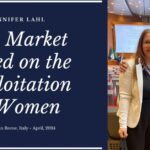The world’s first baby has been born from “natural” IVF, and the story is making the news a lot these days. Not news to us at the CBC, is the fact that IVF carries risks and those risks can be significant both to the mother undergoing IVF and to the child born via IVF technologies.
Because of these risks, what we’ve learned over the last three decades (since the birth of Louise Brown, the first ‘test-tube’ baby) is that less is better. Less harmful stimulation with fertility drugs, which have known risks. Lower doses of drugs so that fewer eggs are produced and less risk of developing Ovarian Hyperstimulation Syndrome (OHSS).
And we know that if fewer eggs are produced, they are of better quality. This increases the chances of fertilization and of subsequent implantation ultimately leading to a live birth (remember IVF is very quality control driven since success is measured in live births). Also, don’t implant so many embryos since multiples carry risks to mother and child(ren) – women weren’t made for litter births. And so on . . .
With each new day, we learn more about the risks. A new drug, kisspeptin, is touted as ‘safer’ and ‘gentler’ with minimal side effects. All well and good I suppose for the women who choose to take these drugs in order to have a child. But what will we learn tomorrow? Will kisspeptin get pushed out for the next ‘safer’ and ‘gentler’ drug?
And what about the egg donor? It has been my contention all along that any of these more natural, kinder and gentler approaches will not trickle down to the woman donating or selling her eggs. Why? Because she’s being paid to produce eggs and lots of them. She’s not a patient who is given a less is better approach. She’s a commodity who is treated as a producer of eggs.
Author Profile

- Jennifer Lahl, MA, BSN, RN, is founder and president of The Center for Bioethics and Culture Network. Lahl couples her 25 years of experience as a pediatric critical care nurse, a hospital administrator, and a senior-level nursing manager with a deep passion to speak for those who have no voice. Lahl’s writings have appeared in various publications including Cambridge University Press, the San Francisco Chronicle, the Dallas Morning News, and the American Journal of Bioethics. As a field expert, she is routinely interviewed on radio and television including ABC, CBS, PBS, and NPR. She is also called upon to speak alongside lawmakers and members of the scientific community, even being invited to speak to members of the European Parliament in Brussels to address issues of egg trafficking; she has three times addressed the United Nations during the Commission on the Status of Women on egg and womb trafficking.
Latest entries
 Assisted Reproductive TechnologyApril 16, 2024Founder Jennifer Lahl’s Speech on Surrogacy to the Casablanca Declaration
Assisted Reproductive TechnologyApril 16, 2024Founder Jennifer Lahl’s Speech on Surrogacy to the Casablanca Declaration #BigFertilityFebruary 27, 2024No, Alabama Didn’t Ban IVF
#BigFertilityFebruary 27, 2024No, Alabama Didn’t Ban IVF ArticleSeptember 25, 2023The Little Engine That Could
ArticleSeptember 25, 2023The Little Engine That Could SurrogacySeptember 12, 2023Surrogacy Scandals Continue
SurrogacySeptember 12, 2023Surrogacy Scandals Continue

